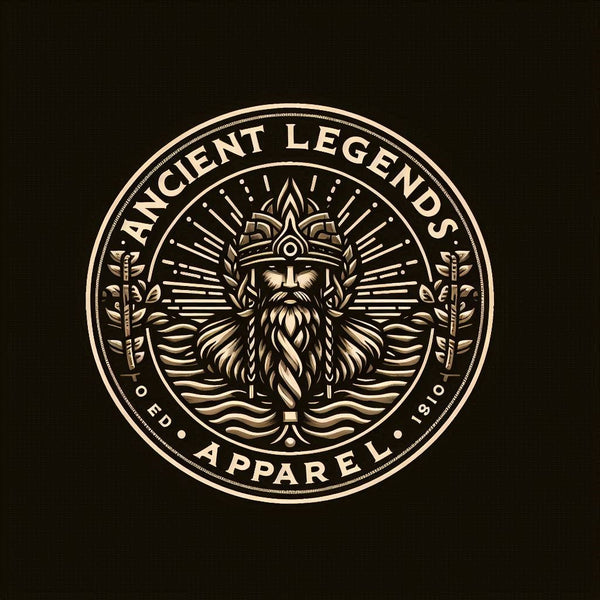Symbolism Behind Greek Mythology
Karl FShare
INTRODUCTION
Regarded as a vast repository of colossal warriors, ethereal maidens, terrible monsters, and over-auspicious gods, Greek mythology constitutes an integral part of classical education. Initially used as a moral compass to guide individuals through life and its many challenges, these timeless epics continue to provoke curiosity, analysis, and reverence. Within these intricate myths, each character, object, and event carries substantial symbolic meaning waiting to be plumbed. Deciphering this symbolism has become a scholarly pursuit, shedding deeper insight into the structure and psyche of early Greek civilization.
ORIGIN AND CULTURAL CONTEXT
Greek mythology may be traced back to the Bronze Age, from around 2000 B.C., when Mycenaean and Minoan civilizations thrived in Greece. Rooted in the oral folk traditions of the early Mycenaean culture, these myths metamorphosed into sophisticated narratives by the time of poetic maestros like Hesiod and Homer in the 8th century B.C.
Mythology was a crucial facet of the Greek’s socio-religious fabric, a way of comprehending the world and providing explanations for the mysteries of life and death. The myths encoded a collection of gods and deities, like Zeus, Poseidon, Apollo, and Athena, to express different natural phenomena. For example, Zeus represented the sky and thunder while Poseidon governed the seas.
THE LEGEND OR STORY
Of many fantastic myths of valor, beauty, adventure, and divine folly, the story of Perseus and the Gorgon Medusa stands as a fascinating one.
Perseus, a demigod son of Zeus and Danae, was forced to embark on a perilous mission to slay the Medusa and bring back her head. Medusa, the Serpent Maiden, was once a beautiful maiden until Athena transformed her into a hideous monster as punishment for profaning her sacred temple. Anyone who gazed directly at Medusa's visage was instantly petrified. Perseus, with divine assistance from Athena and Hermes, managed to kill Medusa and fulfill his daunting prophecy.
INTERPRETATIONS AND SYMBOLISM
Greek myths were fertile with symbols and concealed layers of meaning. In the story of Perseus and Medusa, each character and event brims with symbolic connotations.
Perseus, a demigod, reciprocated the fusion of divine and mortal realms in Greek belief. Medusa represented mortal transgression and divine betrayal; she typified the lethal power female allure could wield, ultimately leading to catastrophe. Moreover, her transformation from a stunning maiden to a grotesque monster mirrored the Greek idea of 'hubris', a severe downfall after excessive pride. Athena's role as Perseus's guide echoes the wisdom and strategic warcraft she symbolizes.
COMPARISONS IN OTHER CULTURES
Comparative mythology recognizes similar symbolic constructs across various cultures. Comparing Perseus's quest in Greek mythology, in Hinduism, Arjuna, a great warrior, also embarks on a divine mission to slay formidable enemies, guided by the god Krishna, much like Athena assisted Perseus.
In Norse myths, Thor's quest to conquer the monstrous sons of the Frost Giant mirrors Perseus's journey. Both pairs combat monstrous threats, guided by divine intelligence, to safeguard humanity.
MODERN REFERENCES AND POP CULTURE
Greek mythology, with its intrinsic drama and intriguing symbolism, has left a lasting imprint on popular culture. For instance, Ray Harryhausen's 1981 film "Clash of the Titans" brought to life the adventure of Perseus, and recently, Percy Jackson's series helmed by Rick Riordan has modernized Greek mythology for young readers.
Not limited to film and literature, Greek symbols have permeated the gaming industry as well, such as in popular games like "God of War" and "Assassin's Creed: Odyssey".
LEGACY AND LASTING MYSTERIES
The legacy of Greek mythology persists not just in narratives and characters but also in an empirical lens to interpret the world. The story of Perseus and Medusa remains one of the most iconic Greek myths, emblematic of the quintessential hero's journey. However, it also leaves lingering mysteries. Why was the punishment of Medusa singularly malicious when both Athena's temple and Medusa were wronged by Poseidon? Could the narrative justify the harsh punishment meted out to Medusa?
Endlessly fascinating, Greek mythology continues to ignite curious minds, balancing on the cusp of antiquity's echoes and the palpitations of modernity.
